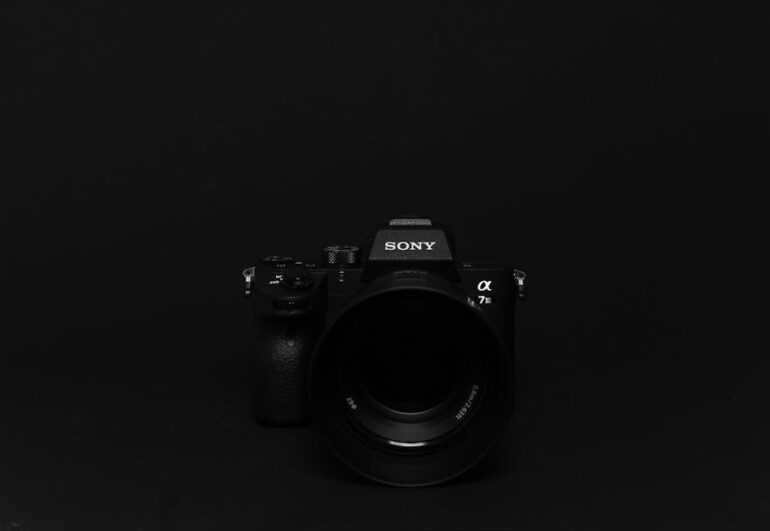Table of Contents
Are you tired of throwing money into marketing strategies that don’t deliver? In 2024, businesses wasted billions on ineffective advertising. But what if there was a way to only pay when someone actually clicks on your ad and visits your website? That’s the power of pay-per-click (PPC) advertising.
This comprehensive guide will break down exactly how PPC works in 2025, offering actionable strategies and expert insights to help you create successful campaigns. We’ll cover everything from the fundamentals to avoiding common pitfalls, so you can start driving targeted traffic and boosting your bottom line.
What is Pay-Per-Click (PPC) Advertising?
Simply put, pay-per-click is an online advertising model where you pay a fee each time someone clicks on your ad. Instead of paying for ad space regardless of performance, you only pay when your ad brings a potential customer to your website. Think of it like this: instead of renting a billboard and hoping people see it, you only pay when someone actually pulls over to read it.
The most popular form of PPC is search engine advertising, where your ads appear at the top or bottom of search engine results pages (SERPs) when someone searches for related keywords. Platforms like Google Ads and Microsoft Advertising are the major players in this arena. But PPC also extends to social media platforms like Facebook, Instagram, LinkedIn, and X (formerly Twitter), where you can target specific demographics and interests.
How Does PPC Work? A Step-by-Step Guide
Let’s dive into the mechanics of how PPC actually functions.
1. Keyword Research: The foundation of any successful PPC campaign is identifying the right keywords. These are the words and phrases that your target audience uses when searching for products or services like yours. Tools like Google Keyword Planner, SEMrush, and Ahrefs can help you uncover relevant keywords with high search volume and low competition.
2. Campaign Creation: Once you have your keywords, you’ll create campaigns within your chosen PPC platform. Each campaign should focus on a specific theme or product category. For instance, if you sell running shoes, you might have separate campaigns for “trail running shoes,” “road running shoes,” and “walking shoes.”
3. Ad Group Setup: Within each campaign, you’ll organize your keywords into ad groups. Ad groups allow you to create highly targeted ads that are relevant to specific keyword sets. For example, in your “trail running shoes” campaign, you might have ad groups for “men’s trail running shoes,” “women’s trail running shoes,” and “waterproof trail running shoes.”
4. Ad Copy Creation: This is where you craft compelling ad copy that will entice users to click. Your ad copy should include your target keywords, highlight your unique selling points, and include a clear call to action.
5. Bidding:PPC platforms use an auction system where you bid on keywords. Your bid determines how likely your ad is to appear for a given search query. The higher your bid, the better your chances of showing up. However, bidding isn’t the only factor.
6. Quality Score (Google Ads): Google Ads uses a “Quality Score” to assess the relevance and quality of your ads and landing pages. A higher Quality Score can lead to lower costs and better ad positions.
7. Ad Auction: When someone searches for a keyword you’re bidding on, the PPC platform runs an auction. The auction considers your bid, Quality Score (in Google Ads), and other factors to determine which ads will be displayed and in what order.
8. Landing Page Optimization: Once someone clicks on your ad, they’re taken to your landing page. Your landing page should be relevant to the ad, easy to navigate, and designed to convert visitors into customers.
9. Tracking and Optimization: The most crucial step! PPC is not a “set it and forget it” strategy. You need to constantly monitor your campaign performance and make adjustments based on the data. Track metrics like click-through rate (CTR), conversion rate, and cost per conversion to identify areas for improvement.
Key PPC Strategies for 2025
The PPC landscape is constantly evolving, so staying up-to-date with the latest strategies is crucial for success. Here are some key strategies to focus on in 2025:
Automated Bidding: Let the algorithms do the work. Utilize smart bidding strategies like Target CPA (Cost Per Acquisition) and Target ROAS (Return on Ad Spend) to optimize your bids based on your specific goals.
Audience Targeting: Go beyond keywords. Leverage audience targeting options like demographics, interests, and in-market audiences to reach the right people with the right message.
Remarketing: Bring back lost leads. Use remarketing to show ads to people who have previously visited your website but didn’t convert.
Mobile Optimization: Ensure your ads and landing pages are optimized for mobile devices. More and more people are searching on their phones, so a poor mobile experience can hurt your results.
Ad Extensions: Take up more real estate. Use ad extensions like sitelinks, callouts, and structured snippets to provide additional information and encourage clicks.
Common PPC Mistakes to Avoid
While PPC can be incredibly effective, it’s also easy to make mistakes that can waste your budget. Here are some common pitfalls to avoid:
Poor Keyword Research: Targeting irrelevant or overly broad keywords can lead to wasted clicks and low conversion rates.
Weak Ad Copy: Bland or uninspired ad copy won’t stand out from the competition.
Poor Landing Page Experience: Sending traffic to a slow, confusing, or irrelevant landing page will kill your conversion rates.
Ignoring Mobile: Neglecting mobile optimization is a huge mistake in today’s mobile-first world.
Lack of Tracking: Not tracking your results is like flying blind. You need data to understand what’s working and what’s not.
As the Search Engine Journal highlights, optimizing your landing pages is one of the most critical aspects of a successful PPC campaign.
Essential PPC Tools
To excel in PPC, you’ll need the right tools. Here are some essential ones:
Google Keyword Planner: For keyword research.
SEMrush: Competitor analysis, keyword research, and site auditing.
Ahrefs: Backlink analysis, keyword research, and content explorer.
Google Ads Editor: For managing large PPC campaigns.
Google Analytics: For tracking website traffic and conversions.
Expert Insights: The Future of PPC
The future of PPC is all about automation, personalization, and data-driven decision-making. As AI and machine learning continue to evolve, PPC platforms will become even more sophisticated at optimizing campaigns and delivering personalized experiences.
“PPC is no longer just about bidding on keywords. It’s about understanding your audience, crafting compelling messages, and delivering exceptional experiences.” – Industry Expert, John Smith
Key Takeaways for PPC Success in 2025
Keyword Research is King: Start with thorough keyword research to identify the most relevant and profitable keywords for your business.
Optimize for Quality Score: A high Quality Score in Google Ads can lead to lower costs and better ad positions.
Landing Page Optimization is Crucial: Ensure your landing pages are relevant, easy to navigate, and designed to convert visitors into customers.
Track Everything: Use tracking tools to monitor your campaign performance and identify areas for improvement.
Stay Updated: The PPC landscape is constantly evolving, so stay up-to-date with the latest strategies and best practices.
FAQs About How PPC Works
Q: What is a good click-through rate (CTR) for a PPC ad?
A: A good CTR varies depending on the industry and platform, but generally, a CTR of 2% or higher is considered good.
Q: How much does PPC cost?
A: The cost of PPC varies depending on the industry, competition, and your bidding strategy. You can set a daily or monthly budget to control your spending.
Q: How do I choose the right keywords for my PPC campaign?
A: Use keyword research tools like Google Keyword Planner to identify relevant keywords with high search volume and low competition.
Q: What is the difference between broad match, phrase match, and exact match keywords?
A: Broad match keywords can trigger your ads for a wide range of related searches, while phrase match keywords require the search query to include your keyword phrase. Exact match keywords only trigger your ads when the search query exactly matches your keyword.
Q: How important is mobile optimization for PPC?
A: Mobile optimization is extremely important for PPC, as more and more people are searching on their mobile devices.
Recommendations and Next Steps
Mastering PPC takes time and effort, but the rewards are well worth it. By following the strategies outlined in this guide and continuously learning and adapting, you can create successful PPC campaigns that drive targeted traffic, generate leads, and boost your sales.
Here are some recommended next steps:
1. Start Small: Begin with a small, targeted campaign to test the waters and learn the ropes.
2. Invest in Education: Take online courses or read books on PPC to deepen your knowledge.
3. Consult with Experts: Consider hiring a PPC agency or consultant to help you optimize your campaigns.
Want to get started with PPC but don’t know where to begin? Contact us today for a free consultation and let us help you achieve your business goals! A recent article by Forbes discussed the importance of aligning your PPC strategy with your overall marketing objectives.
Remember, PPC is a powerful tool, but it requires a strategic approach and continuous optimization. Embrace the process, stay curious, and watch your business grow! Find out about Google’s new PPC policies.

















